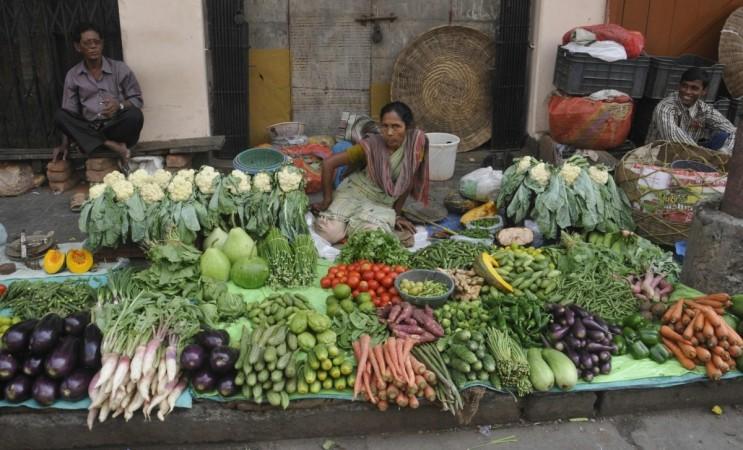
'I had rashes and boils at age 4. After checking for the source, my mother removed all dairy from my plate. The problems vanished and since then I have been on a whole food plant based diet, living to my full potential," said Sheila, now in her teens.
Young Adarsh still not a teen had a similar story to tell of how he had recurring colds and coughs till meat and dairy was taken off his diet. The problems vanished. For another it was moods that got addressed even as energy levels shot up. The child prodigies advocating plant based whole food ranged from age 10-20. They were participating at a conference on evidence based nutrition in Bengaluru this Sunday.
Besides sharing their experiences with plant based food, they also asked questions. Does plant food have all the nutrients we need? What about proteins, which we are told, is less in plant food? Answering them was a panel of doctors, nutrition experts and lifestyle coaches, all members of the Indian branch of the (PAN) Physicians Association for Nutrition which met at ITC Gardenia in Bengaluru.
Addressing the queries of the child prodigies Dr Naveen Kini, practising paediatrician, assured the children that plant based food has enough and all nutrients required for all ages as it is rich in fibre, phytonutrients, healthy fats and proteins while being zero in cholesterol, poisonous things like mercury, etc. All one needs is to take a B12 supplement, he said.
"Food is a package, and we should not be looking at micronutrients. Animal food may have more proteins but it comes with the well-known side effects. For instance, red meat is carcinogenic and should ideally come with a warning!" added Dr Sharang Wartikar.
PAN International is on a mission to eliminate diet related deaths globally by advocating for nutrition to be a core part of healthcare. Dr Rajeena Shahin, medical director of PAN India spearheaded the latest edition of the meet which was an ongoing series in the Continuing Medical Education (CME) for doctors. Herself a leading figure in propagating lifestyle medicine, she has pioneered the use of technology in therapeutic lifestyle interventions. Having been an omnivore who turned to whole food plant based diet in 2011 to lose weight and in 2019 she switched off all animal products, realising the impact of animal farming on the planet. "I feel much more energetic and healthy in my 40s than in my 20s," she said.
The CMEs bring together practitioners using evidence based nutrition, with an emphasis on plant based diet.
Dr Sharang assured the children that there was adequate proteins in plant food, as also calcium, the doses for which are well met with a balanced meal of vegetables and fruits making half the meal and a quarter each by grains and pulses. For muscle-building, one needs to do exercise rather than source strong doses of proteins from food. The over emphasis on proteins is a myth of marketing, he noted.

Earlier when addressing the audience, Dr Rajeena said that nutrition can be related to a host of issues like food insecurity, climate change, antibiotic resistance and much more. She emphasised on the need to incorporate nutrition into medical education. "Today foods overconsumed are processed meat, sugars, saturated fats from animal meat, etc. leading to many ailments. First line of treatment should be nutrition and lifestyle interventions and only then medical therapy should be offered," she added.
Cardiologist and head of preventive cardiology at PGIMSR, Dr G Rajendiran noted how in cardiovascular diseases, a major constituent is dietary risks, followed by hypertension, air pollution and so on. On a humorous aside, he spoke of the India and China battle in heart ailments, noting that there is five-fold lesser incidence in China which consumes 57 percent of the world's veg and fruit produce.
In Bolivia's Tsimane, a tribal community living on hunting, fishing and farming was found to have lower cardiovascular risks thanks to their food and exercise patterns. Over 60 percent in a study had nil coronary artery calcium indicating no risk for cardiovascular diseases. The tribe consumes meat, fish and also plenty of fruits and vegetables, while walking a lot daily. In fact it is the place showing lowest reported levels of coronary heart diseases the world over.
Similarly, Cuba in 1991-95 the 'special period' of economic crisis brought a health benefit as people had to forego meat and start farming. They had to cycle to work due to fuel prices or travel by foot. These lifestyle changes helped.
The professor touched upon the diet prescriptions of reputed practitioners like Lester Morrison, Caldwell Esselstyn, Dean Ornish and others who advocated plant based whole food diet. He told the audience that antioxidant polyphenols found in plant food plays an important role in improved cardiovascular health. He also touched upon the role of TMAO originating in animal foods and known to contribute to atherosclerosis. Neurosurgeon Ganesh Veerabhadraiah cited studies that have clearly indicated the benefits of plant food in averting strokes.
Opthalmologist Sharang Wartikar gave the audience a sample of what animal farming has done to the planet and its resources, while noting that they constitute over 60 percent of all land mammals today. Around 1/3 of cattle found globally are in India. Humans stand at 8 billion but the livestock number reared for milk and meat is around 80 billion, requiring huge areas of land, water and fodder. "Besides the burden on the ecosystem, there are other problems like infectious diseases, 75 percent of which originate from animals, and the challenge of antibiotic resistance given that 80 percent of it is used in animal farms," he said. Meat and milk consumption is set to double by 2050, he noted.
This humongous population raises a big risk to all other species as seen by the extinction rate which is at 3 species every hour as against the natural rate of 3 every year.
Talking about milk, Dr Sharang said that studies have clearly established the link to indigestion, diabetes, acne, etc but 'marketing has turned milk as healthy.'
Supraja, nutritionist and holistic health coach and cancer survivor, spoke of her experiences as she reversed the cancer with healthy whole food plant based diet. "Today I run marathons, dance and enjoy high levels of energy," she said.
Gynaecologists, neurosurgeon, paedetricians and general practitioners from the city and other parts of the country agreed that dairy supplement was not needed, either for calcium or protein. Most of the speakers spoke from their experience of plant food, vouching for its safety and completeness.

















